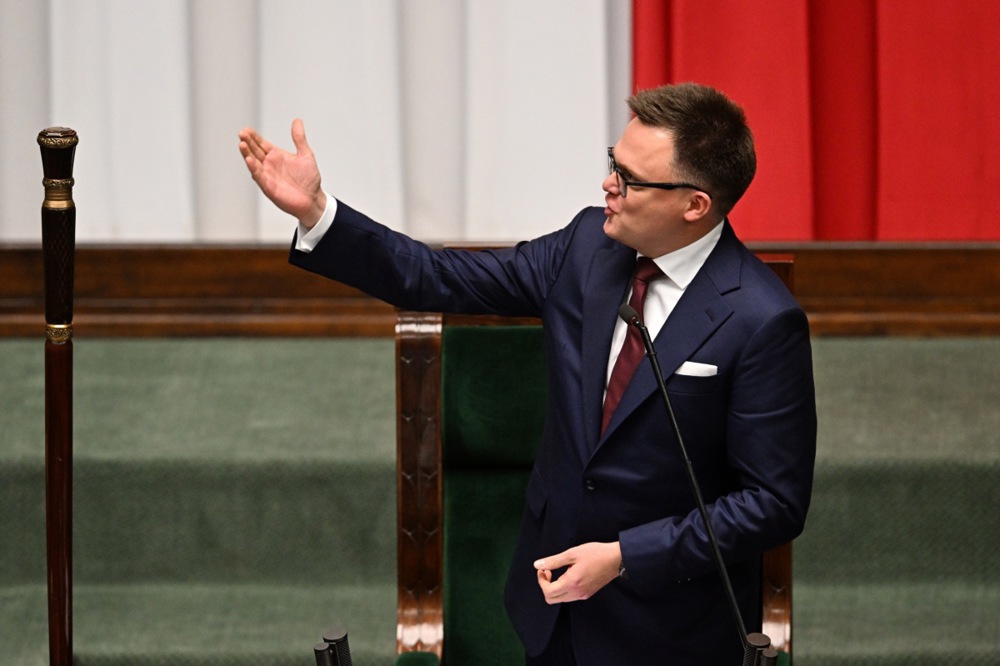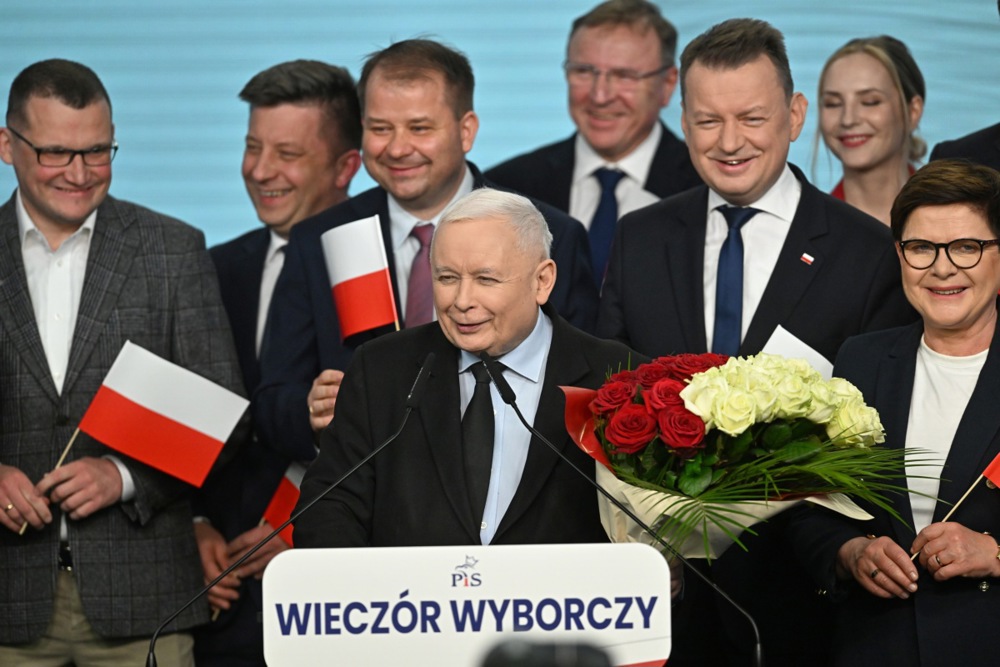Polish Prime Minister Donald Tusk has said he accepts that his government has failed to deliver on many important election pledges.
But, on the second anniversary of returning to power and two years ahead of Poland’s next parliamentary elections, he blamed his coalition partners, opposition from the political Right and the presidential office for the failings.
His coalition came to power in the autumn of 2023 after the election on October 15. His Civic Coalition (KO), the centrist Third Way Coalition and the Left party together managed to win a parliamentary majority over the former ruling Conservatives (PiS).
Tusk, who had been prime minister between 2007 and 2014, came back to power promising the “return of the rule of law”, improved relations with EU institutions, tax cuts, and help for first-time buyers in the housing market. He also pledged the granting of legal status to same-sex unions and liberalisation of abortion legislation.
“We haven’t achieved everything we promised,” Tusk said during a public meeting in Piotrków Trybunalski, central Poland yesterday.
“The coalition has turned out to be more difficult than I thought, and we didn’t win the presidential election. I take full political responsibility for that,” he added.
Tusk has been criticised within the ruling coalition for failing to consult partners or instigate regular coalition meetings.
Indeed, his decision to hold a public meeting rather than hold a joint event with his coalition partners on the second anniversary has illustrated how tense relations within the coalition have become. That was exacerbated by the Speaker Szymon Hołownia openly defying Tusk by refusing to delay the taking of the oath of office by the new President Karol Nawrocki.
That denial came after unsubstantiated allegations of the miscounting of votes and claims that the court verifying the result was illegitimate, as it was said to be controlled by the opposition.
The Prime Minister during the public meeting today argued that the past two years have been marked by war, inflation and what he called a “political civil war” waged by the opposition Right made up of the PiS and the Confederation party.
Tusk has also claimed Poland is effectively engaged in the war in Ukraine, despite the fact that the country has ruled out putting troops on the ground. Poland has, though, acted as a hub for military and humanitarian aid for Ukraine.
Inflation, which at one point exceeded 15 per cent in 2023 in the aftermath of the Covid pandemic and the onset of the conflict in Ukraine, was falling sharply in the months preceding Tusk’s arrival in office and has continued to decline steadily to reach 3 per cent now.
The PiS and Confederation have not engaged in any direct action or violence while in opposition, unlike the Tusk group when in opposition. Their supporters in 2016 attempted to storm parliament while their deputies occupied the parliamentary chamber for weeks, allegedly in protest at government plans to restrict reporting in parliament.
The Tusk government has faced PiS opposition-allied presidents in Andrzej Duda and, since August, Nawrocki, who have vetoed some pieces of legislation.
They both made clear, though, that they would support the government on reductions in income and capital gains taxation and any moves to ease the situation for first-time buyers on the housing market.
While both Duda and Nawrocki may have vetoed any liberalisation of abortion or granting legal status to same sex unions, they never got the chance. Disagreements within the coalition over these issues as well as tax reform and mortgage relief have meant that no legislation on such has been proposed by parliament for the head of state to consider.
“After two difficult years, I can say with a clear conscience that roughly the same number of people who voted on October 15, 2023, still believe in us,” Tusk said yesterday, thanking supporters.
The Tusk coalition c,andidate in the presidential election Rafał Trzaskowski failed in his bid, losing to Nawrocki, but despite the government’s lack of popularity, the largest party in the coalition (KO) has continued to lead in most opinion polls.
The parties that make up the ruling coalition now have 45 per cent support, with three out of the four sitting below the electoral threshold as opposed to 51 per cent for the parties of the Right, all of whom are above that threshold level.
During his public meeting, Tusk highlighted government achievements, including lowering inflation, raising public-sector wages by “30 per cent for teachers and 20 per cent for civil servants” and increasing funding for healthcare. He added that Poland ranks seventh in Europe in social welfare spending and tops the NATO league on European defence spending.
Both the increases in welfare and defence spending, though, were initiated and activated under the previous PiS government. It increased government income by boosting tax yields from a growing economy but both welfare and defence are now under threat from the worsening situation in terms of public borrowing needs and debt.
Tusk’s government has managed to unlock European Union funds as a result of the European Commission taking him at his word that he would reform Poland’s judiciary in line with EU institutions’ expectations, even though the legislation for doing so has not been passed.
The Prime Minister recently boasted that the EC will in the coming days exempt Poland from the reallocation of illegal migrants mechanism of the EU Migration Pact. He said that was because Poland has been facing intense migration pressure over the past few years with arrivals from from Ukraine and Belarus.
During the public meeting in Piotrków, Tusk promised he would spend the next two years delivering his election promises. He would not be drawn into saying how he would overcome resistance from Nawrocki on the question of removing judges and courts set up during the time of the last PiS government.
Klaus Bachmann, an influential German professor who specialises in Polish affairs and is a Tusk advocate, earlier in October wrote an article in the German media in which he urged Tusk to use the gold reserves built up by Poland’s central bank to clear Polish debts.
That, Bachmann claimed, would give the PM room to fulfil his election promises and to use extraordinary measures to purge the country’s judiciary and administration of PiS influence.





